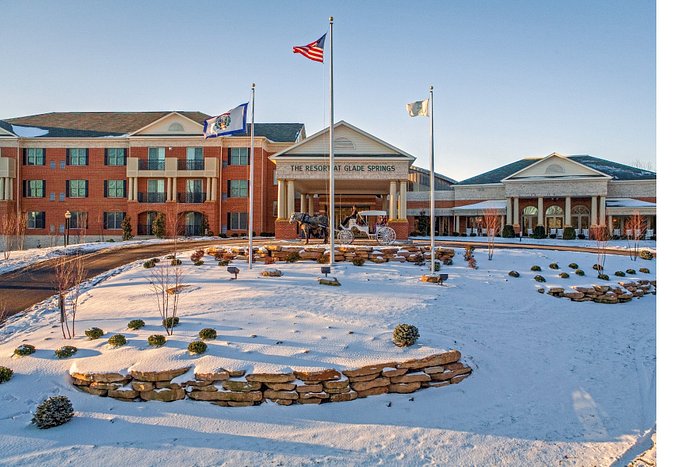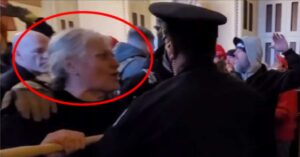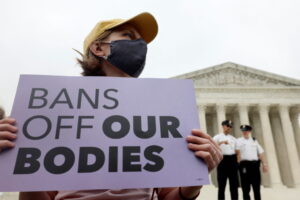The Glade Springs Legal Battle: Understanding The Supreme Court’s Ruling Against Justice Holdings
In a high-stakes legal showdown, West Virginia’s Supreme Court has delivered a resounding verdict in favor of Glade Springs homeowners against Justice Holdings, a development company owned by Gov. Jim Justice and his family. But what exactly does this mean and why does it matter? Let’s delve into the details.
Background of the Legal Dispute
This feud, fraught with legal complexities, centers around the question of whether Justice Holdings should have been paying the same property assessments as other homeowners. The Raleigh Circuit Judge Robert Burnside made an order in favor of the homeowners association in 2021, and since then, a tumultuous appeal process has been underway.
Key Parties Involved
Justice Holdings, owned by Governor Jim Justice and his family, is a key party in the dispute. The firm has its name among dozens of other businesses under the governor’s ownership. In opposition stands the Glade Springs Village Property Owners Association (GSVPOA), representing homeowners in the resort community.
The Root of the Conflict
The conflict emerged when Glade Springs homeowners ousted a Justice-backed governing board and replaced it with their own. The new board continued to challenge whether Justice Holdings should pay assessments for common property maintenance, as other homeowners do.
The Supreme Court’s Verdict
The Court’s 57-Page Order
Justice Haley Bunn authored a 57-page order that favored the homeowners association on most counts, but also opposed them on a few issues. The matter of developer assessments was referred back to the circuit court for resolution.
The Homeowners Association’s Reaction
Following the verdict, the GSVPOA largely saw the decision as a win, celebrating the resolution of major issues despite some matters being referred back to the circuit court.
The Issue of Developer Assessments
The point of contention remanded to the circuit court revolves around developer assessments. This crucial detail is yet to be settled, indicating that the dispute is not entirely over.
The Role of Justice Holdings
Appeal and Oral Arguments
Justice Holdings appealed the circuit court’s initial verdict in favor of the homeowners association. The Supreme Court heard oral arguments in late April, with Justices John Hutchison and Bill Wooton recusing themselves due to their connections to Raleigh County.
The Involvement of Justice Corporate Executives
The Justice corporation’s top executives, James Miller and Stephen Ball, along with Governor Justice’s grown children, Jay and Jill Justice, are listed as the main representatives for Justice Holdings.
Glade Springs: More Than Just a Resort
The Importance of Common Properties
Glade Springs is a planned community that boasts common properties such as roads, a lake, and golf courses, which belong to the homeowners association.
The Role of the Homeowners Association
The homeowners association has a significant role in managing these common properties, thus making their financial contribution crucial.
Implications of the Ruling
The Uniform Common Interest Ownership Act
The verdict has notable implications for property law. It answered a vital question about whether the Uniform Common Interest Ownership Act, West Virginia’s consumer protection law for planned community owners, applies to Glade Springs Village. The majority opinion confirmed it does.
The Issue of Annual Assessments
The Supreme Court agreed with the circuit court that Justice Holdings must pay annual assessments to the association for the lots the developer maintains in its inventory.
Liens and Foreclosure
Following the ruling, the GSVPOA has already started the judicial foreclosure process on Justice Holdings lots.
The Supreme Court’s decision marks a pivotal moment in this ongoing dispute. It’s a tale that demonstrates the significance of property law, the strength of homeowners associations, and the complexities of legal battles involving influential parties. As the dust settles, the implications of this ruling will resonate far beyond Glade Springs, shaping the landscape of planned communities and their governance in West Virginia.
Frequently Asked Questions
- What is the dispute between the Glade Springs homeowners and Justice Holdings about? The dispute is about whether Justice Holdings should have been paying the same property assessments as other homeowners.
- What was the Supreme Court’s verdict in the Glade Springs case? The Supreme Court sided with the homeowners association on most issues but sent the matter of developer assessments back to the circuit court.
- What is the significance of the Uniform Common Interest Ownership Act in this case? The Uniform Common Interest Ownership Act is a consumer protection law for owners in planned communities. The Supreme Court ruling confirmed that it applies fully to Glade Springs Village.
- What does the Supreme Court’s decision mean for Justice Holdings? The court’s decision means that Justice Holdings is required to pay annual assessments on the lots it maintains in its inventory.
- What are the homeowners association’s next steps following the Supreme Court ruling? The GSVPOA has begun the process of judicial foreclosure on the Justice Holdings lots.







